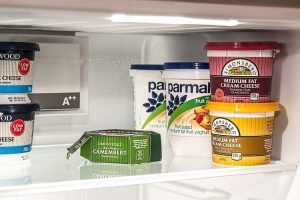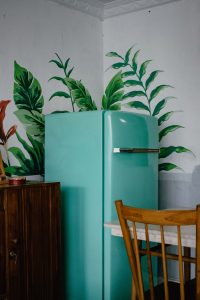Updated on March 13, 2023
How To Tell If Your Refrigerator Needs More Freon
Liquid refrigerant branded as Freon is used in refrigerators, air conditioners, heat pumps, and other HVAC equipment. If your fridge isn’t keeping food cool, you may believe it needs additional Freon. Since the refrigerator keeps a steady supply of Freon, it is unlikely that it will run out of the gas. You may do a few tests to check whether the refrigerator’s malfunctions are caused by Freon leaking or an issue with another part.
Finding that the fridge wasn’t chilling properly lately, I conducted a little research to discover that it needed something called Freon in order to keep cold. What’s more, how can I know if my refrigerator needs additional Freon?

Therefore, I performed some investigation into the best refrigerators for cooling foodstuffs. Turn off the temperature control on your refrigerator, disconnect the appliance, and put your ear on its side for an indication of whether it needs extra Freon. In the presence of Freon, a hissing or gurgling sound may be heard. Nevertheless, if you don’t hear anything, your fridge may be running short on Freon.
Your fridge may not be able to perform properly as a result. Let’s take a closer look at what this implies and how you can remedy it.
WHAT IS REFRIGERATOR FREON?
Refrigerator FREON is the brand name given to the cooling liquid refrigerant that is used in the heating and cooling processes of refrigerators and a variety of other home appliances.
Your fridge’s evaporator and condenser coils, which are located on the interior and exterior of the appliance, are the conduits through which the refrigerant flows.
WHAT TYPE OF FREON IS USED IN REFRIGERATORS?
R-134a is the most common kind of freon used in refrigerators made after 1995. R-12 and R134a are not compatible with each other, and mixing them may harm the compressor. As a result, it is imperative that you examine the labels before trying to combine refrigerators.
R-134a, a refrigerant used in both refrigerators and autos, was widely accessible until January 1, 2020. Despite this, the Environmental Protection Agency has now barred the product from being sold.
DO REFRIGERATORS STILL USE FREON?
Freon is no longer used in current refrigerators since HFC-134a, a more ecologically friendly refrigerant, was found to be more efficient.
DOES MY REFRIGERATOR USE FREON?
Modern refrigerators produced after 1994 are unlikely to utilise Freon because of its negative effect on the environment. Newer refrigerants, such as R-600a or HFC-134a, are being utilised instead of Freon since they have a lower environmental impact.
WHICH TYPE OF REFRIGERANT IS MY REFRIGERATOR USING?
You must first determine the kind of refrigerant in your refrigerator before making any attempts to add more. Your refrigerator may be permanently damaged if you use the incorrect kind of refrigerant.
Check the operating instructions, which are usually available on a label on the back of your fridge or compressor, to find out precisely what sort of refrigerant it uses.
This information may also be found in the user guide. ‘R-‘ followed by two or three digits indicates the kind of Freon.
HOW LONG DOES FREON GAS LAST IN A REFRIGERATOR?
In theory, Freon should last forever unless the coils on your refrigerator are damaged, leading to a leak in the system.
Recharging the Freon
This signifies that there is a leak in the system and must be rectified by a professional technician before extra Freon may be added to it. Those who breathe in the dangerous gas known as freon risk suffering respiratory problems as well as severe burns and brain damage, and even death if they do so.
Avoid recharging Freon yourself. Count on Day & Night Mechanical Solutions’ 20+ years of expertise if you’re worried about a Freon leak.
Does My Fridge Need Refrigerant?
Your refrigerator may require extra Freon, the brand name for liquid refrigerant, if it is no longer keeping food cool. Freon is pressured within a closed system, thus this assumption may be wrong. Freon should not leak unless the system has been tampered with or destroyed.
Component failure, such as a broken thermostat or malfunctioning condenser, or an electrical problem, is the most common cause of a warm refrigerator. To your advantage, you may use the following troubleshooting instructions to figure out if the refrigerator’s problems are caused by Freon leaking (unlikely) or something else entirely.


